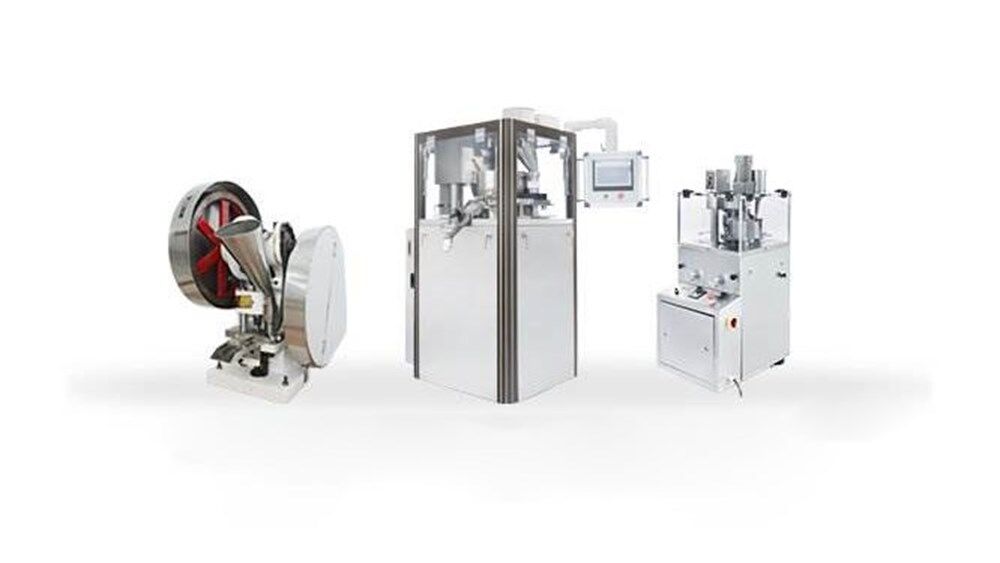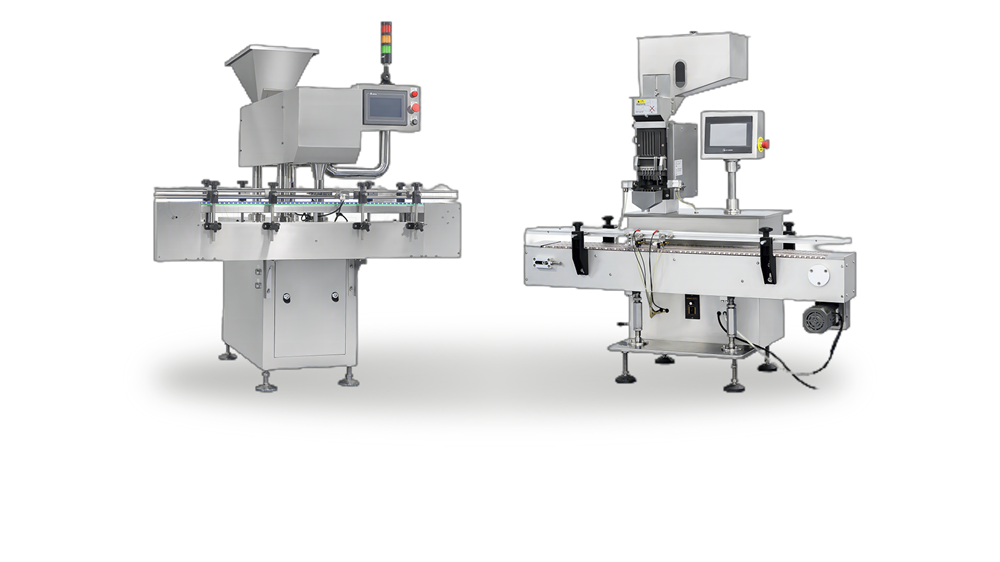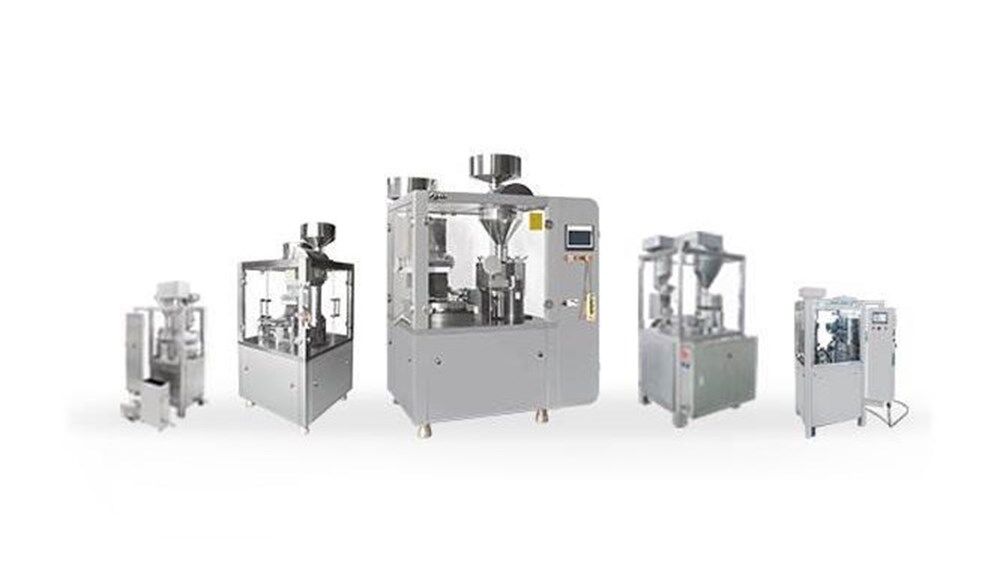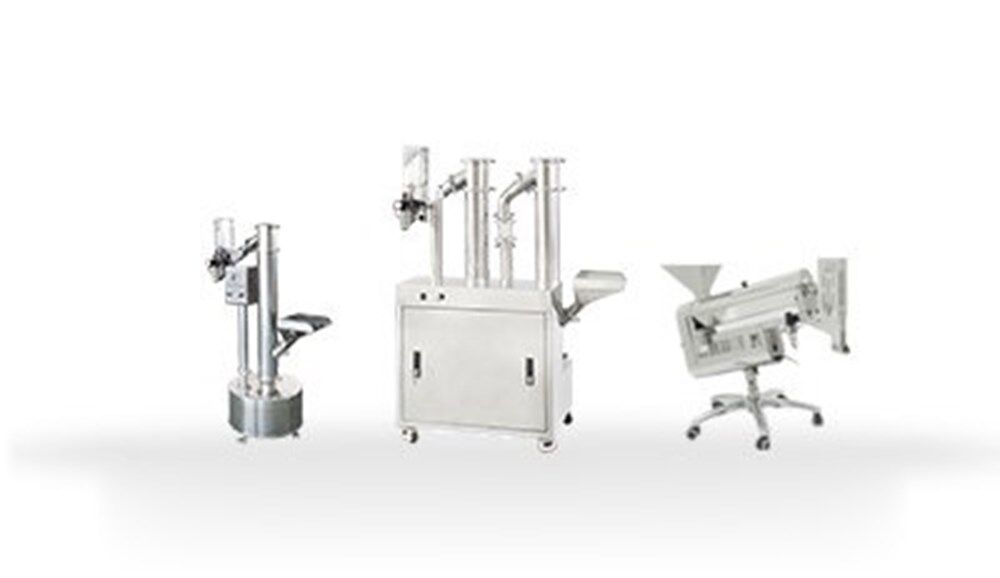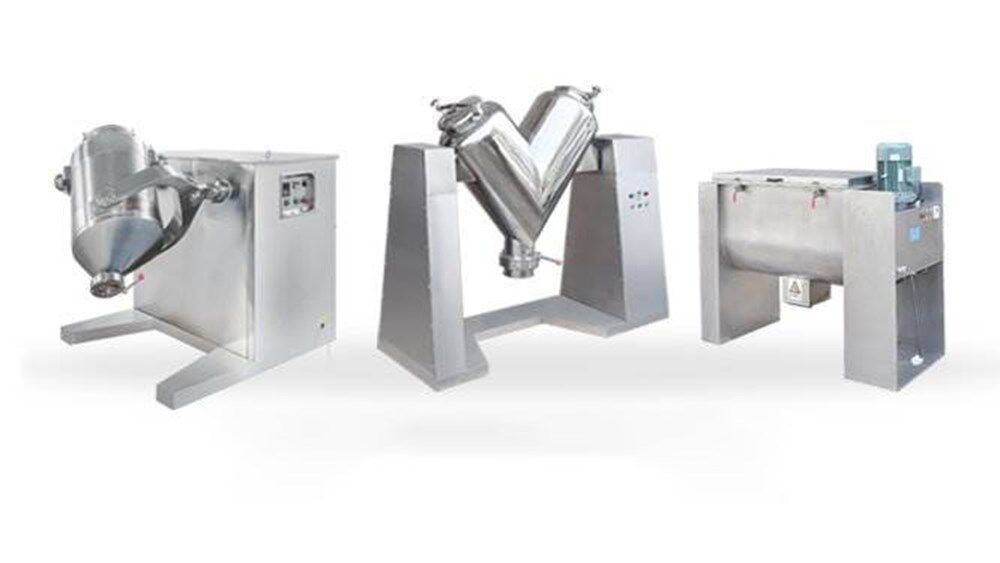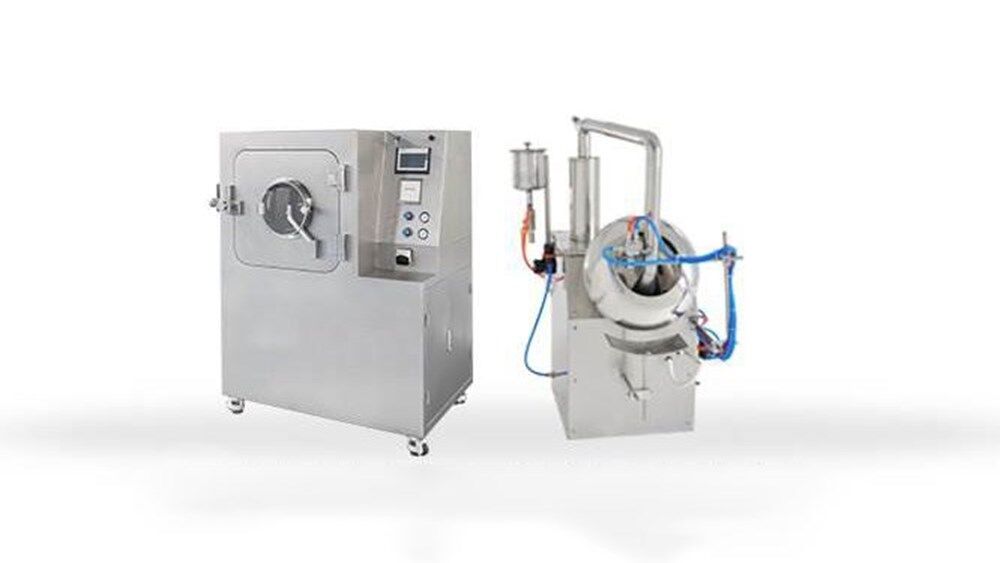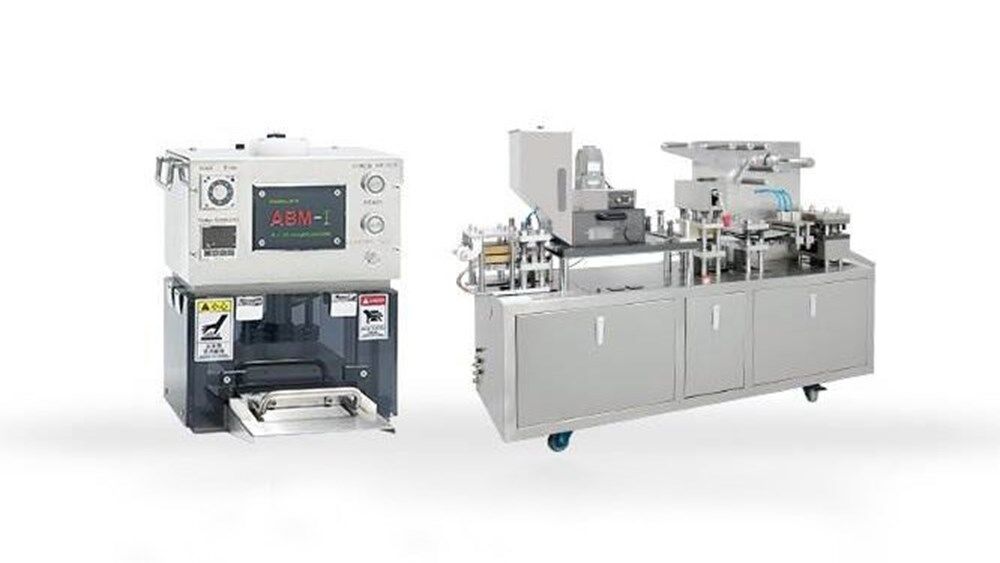What Is a Pharmaceutical Metal Detector and How Does It Work?
As we know, pharmaceutical products are manufactured to save lives. It determines that quality must always be the top priority in the pharmaceutical industry. Substandard drugs may lead to serious consequences. They can put patients at health risks and even death, not to mention the reputation and economic loss on the drug companies.

That's why quality control should never be overlooked. Metal contamination is one of the most common quality issues found in pharmaceutical products. What are the causes of metal contaminants in drugs? How can we stop these contaminated products from messing with the good ones? All it takes is a pharmaceutical metal detector.
Today, we will find out the metal detector's role in the pharmaceutical industry and how this machine assures you that each pill is safe when it reaches you. If you're interested in buying one, this article is also worth your time.
The Potential Sources of Metal Contamination in Pharmaceutical Products
Metal contamination in pharmaceuticals includes metal particles and other metallic foreign bodies. These contaminants can be introduced to products by a bunch of factors.
1. Manufacturing machinery
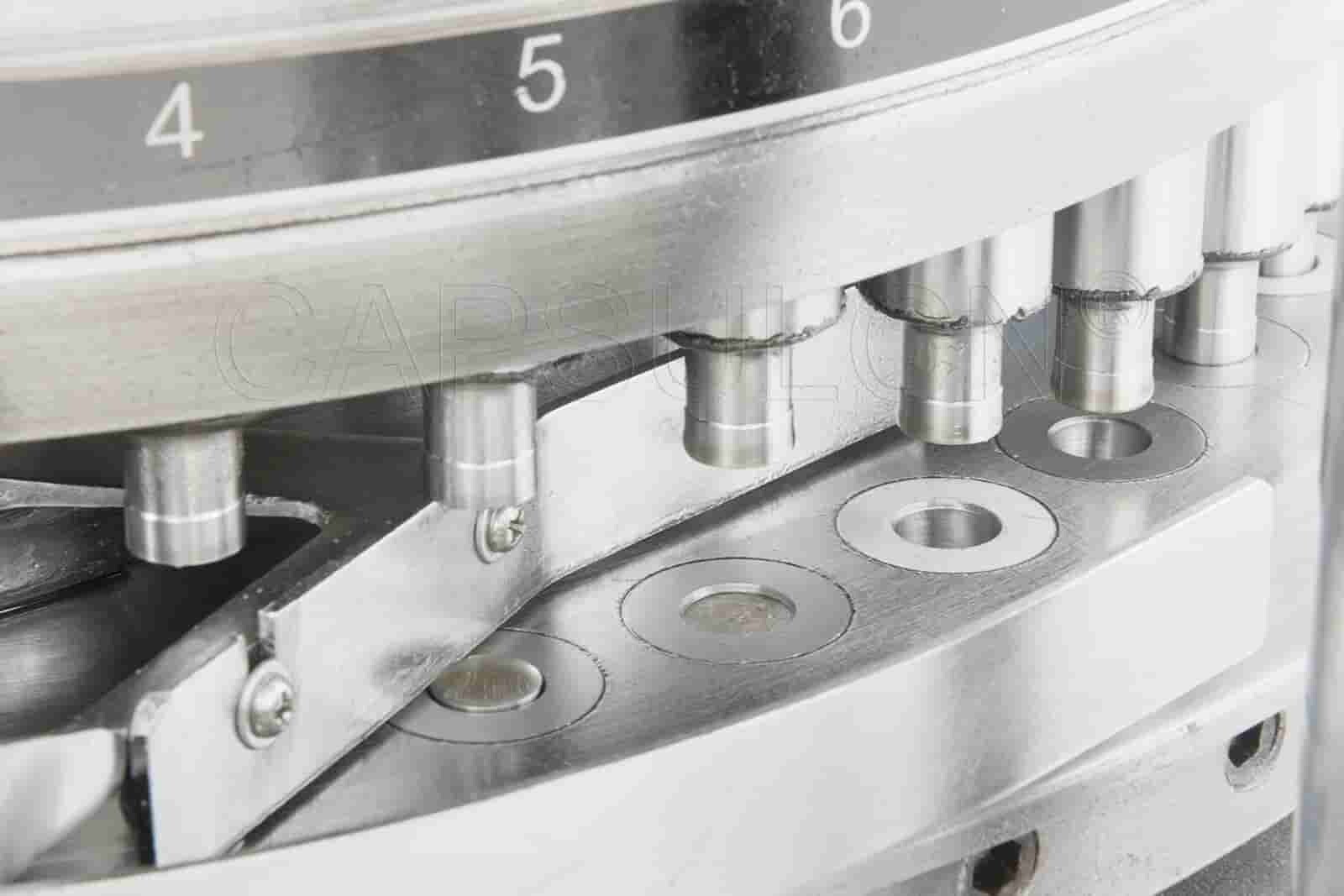
While most pharmaceutical manufacturing machines are built to last long, friction and wear on moving parts are inevitable due to continuous operation. This results in the generation of metal particles over time. These particles may contaminate drugs during the manufacturing process.
2. Formulation

In the pharmaceutical industry, sieving is an essential step to remove any foreign objects before production. If the process is not properly performed, metallic contaminants can be mixed in the formulation ingredients from the very beginning.
3. Packaging materials

Packaging materials can also be a potential cause of metal contamination in pharmaceuticals. Some raw materials themselves contain metal substances (or residues), such as aluminum films, glass, plastic, paper, or paperboard. If not properly handled, the metal particles included in or left on these materials can contaminate the drugs.
Additionally, when these materials need to be processed, such as by cutting or perforating, there is a risk of introducing metal contaminants into the packaged products.
What Are Pharmaceutical Metal Detectors?
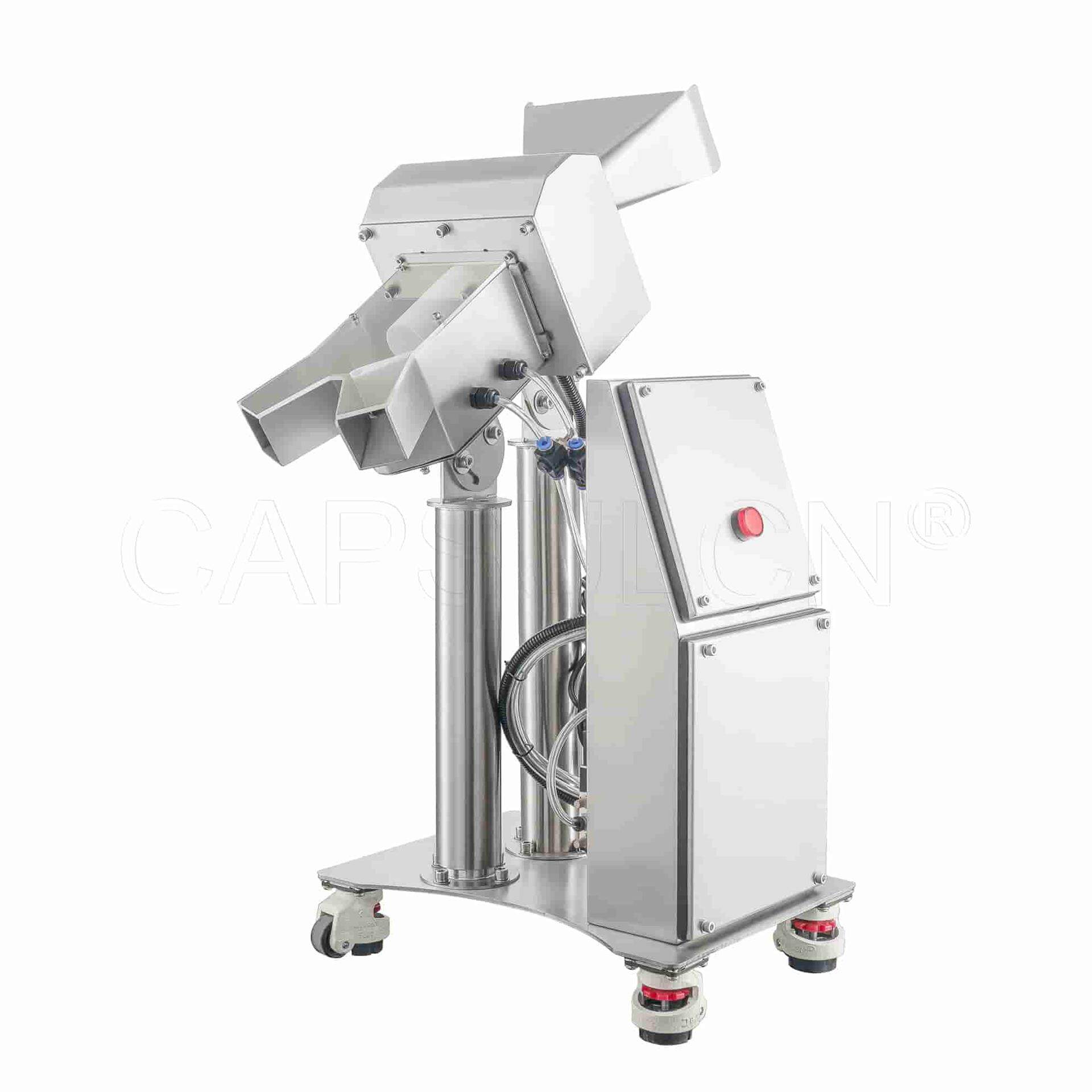
Metal detectors used in the pharmaceutical industry are specialized detection devices. They detect metal particles or metallic foreign objects mixed in capsules, tablets, pills, powders, granules, and other pharmaceutical products. In addition to the detection function, these devices can reject the product contaminated by metal.
Pharmaceutical metal detectors play a critical role in product quality control. These highly sensitive machines ensure each piece of pill is safe to consume and conforms to regulatory requirements.
How Does a Pharmaceutical Metal Detector Work?
The working principle of a pharmaceutical metal detector typically involves electromagnetic induction. The machine utilizes an electromagnetic field to examine and identify if there is any metal particle or foreign object in the pharmaceutical product fed into it.
Here's an overview of how a pharmaceutical metal detector works:
1. Generate an electromagnetic field.
The coil in the detection area produces an electromagnetic field. When pharmaceutical products pass through the area, the field interacts with them to detect the presence of metal particles.
2. Detect disturbance.
Suppose there is a metal piece mixed in the product. When the product passes through the metal detector, it will disturb the electromagnetic field. The detector coil receives the disturbance and generates it to an electrical signal.
3. Process the signal.
Then, the metal detection system starts to process the electrical signal. It analyzes the signal to determine the presence of metal contamination.
4. Reject the contaminated product.
Once the metal is detected, the product is rejected from the machine. The metal-contaminated product will be discharged from a separate chute or pushed off the product flow.
What Are the Types of Metal Detectors in the Pharmaceutical Industry?
Based on the configurations, metal detectors used in the pharmaceutical industry can be classified into two types.
1. Gravity fall metal detectors
They are also known as free-fall or gravity-fed metal detectors. These highly sensitive devices inspect pharmaceutical products as they free fall through the detection area. The metal-contaminated products are directly separated and rejected by the machine.
Many pharmaceutical metal detector models are now integrated with the polishing features. They are great choices for capsule products.
2. Conveyor belt metal detectors
Unlike gravity fall metal detectors that handle free-falling bulk materials, these machines are designed to deal with packaged products. This means these metal detectors identify contaminants in products packaged in containers.
As the name suggests, these metal detectors feature a conveyor belt. Pharmaceutical products to be detected are transferred along the conveyor belt to pass through the detection tunnel rather than free falling. The unqualified products are rejected on the spot.
7 Questions to Ask Before Buying a Pharmaceutical Metal Detector
If you're looking to add a metal detector to your pharmaceutical manufacturing process, here are a few questions to ask the potential suppliers.
1. How sensitive is this pharmaceutical metal detector?
Ensure the metal detector can find even very small metal particles or foreign objects in your products. The more sensitive the detector is, the safer your product will be.
2. Can the metal detector handle different types of pharmaceutical products?
If you're or plan to produce diverse types of products, ask this question to determine if the metal detector is flexible enough to handle products and packaging of different shapes and styles.
3. Is the metal detector user-friendly?
A user-friendly device ensures operators can effectively use it. It can also reduce downtime and errors, ensuring an efficient quality control process.
4. Is the metal detector easy to clean?
After each production run, there may be product residue left in the machine. Ensure the metal detector is easy to clean to prevent cross-contamination. The contamination can affect the detection result and even the machine's lifespan.
5. Can the metal detector easily integrate into our existing production line?
Ensure the metal detector can work with your pharmaceutical machinery, such as capsule fillers or tablet presses. A compatible metal detector is beneficial to streamline the entire production process.
6. Does the metal detector comply with relevant industry regulations and standards?
As the metal detector is used to handle pharmaceutical products, it must be built following regulatory requirements such as GMP or cGMP. The regulation-compliant equipment can ensure the safety and potency of your product.
7. What's the competitive advantage of the metal detector?
With so many options, everyone wants to pick the best-suited metal detector. Asking this question can help you understand the unique features and benefits of the device. This also helps you choose a metal detector that is worth the investment.
Leave your comment
Also Offers
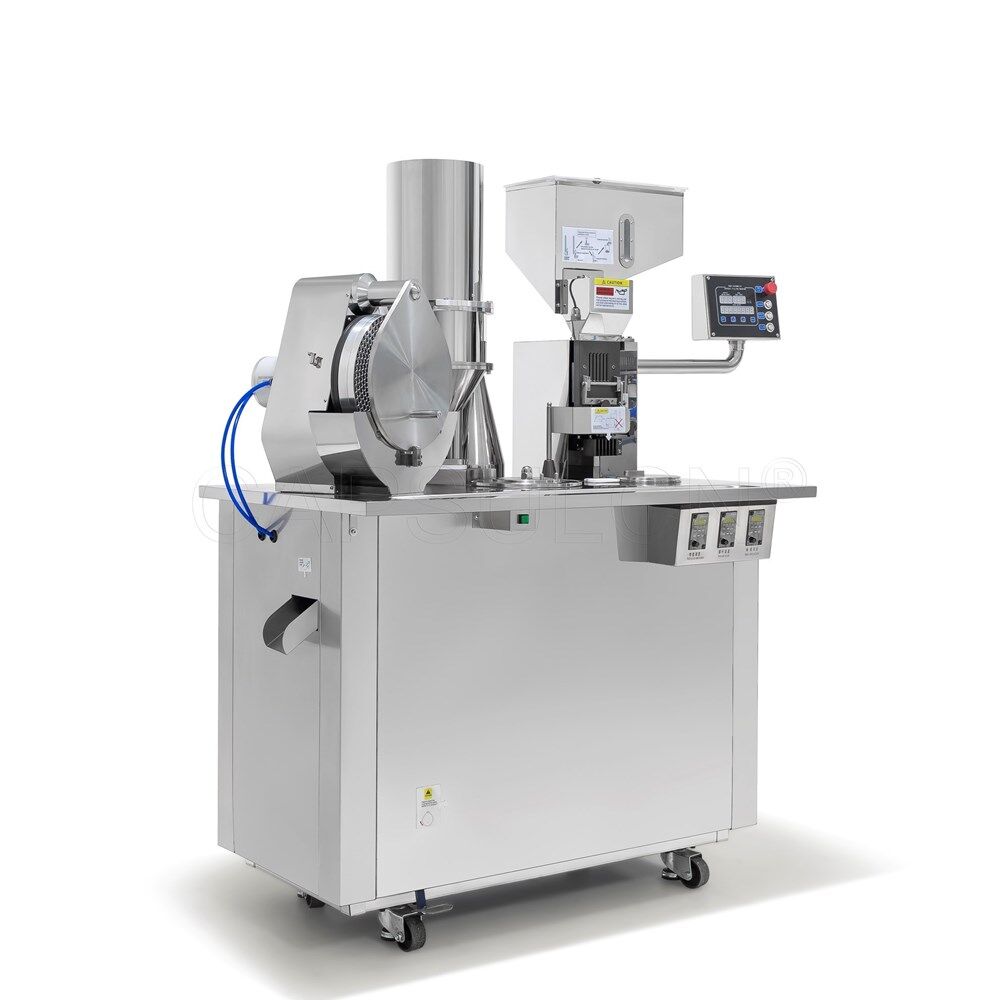
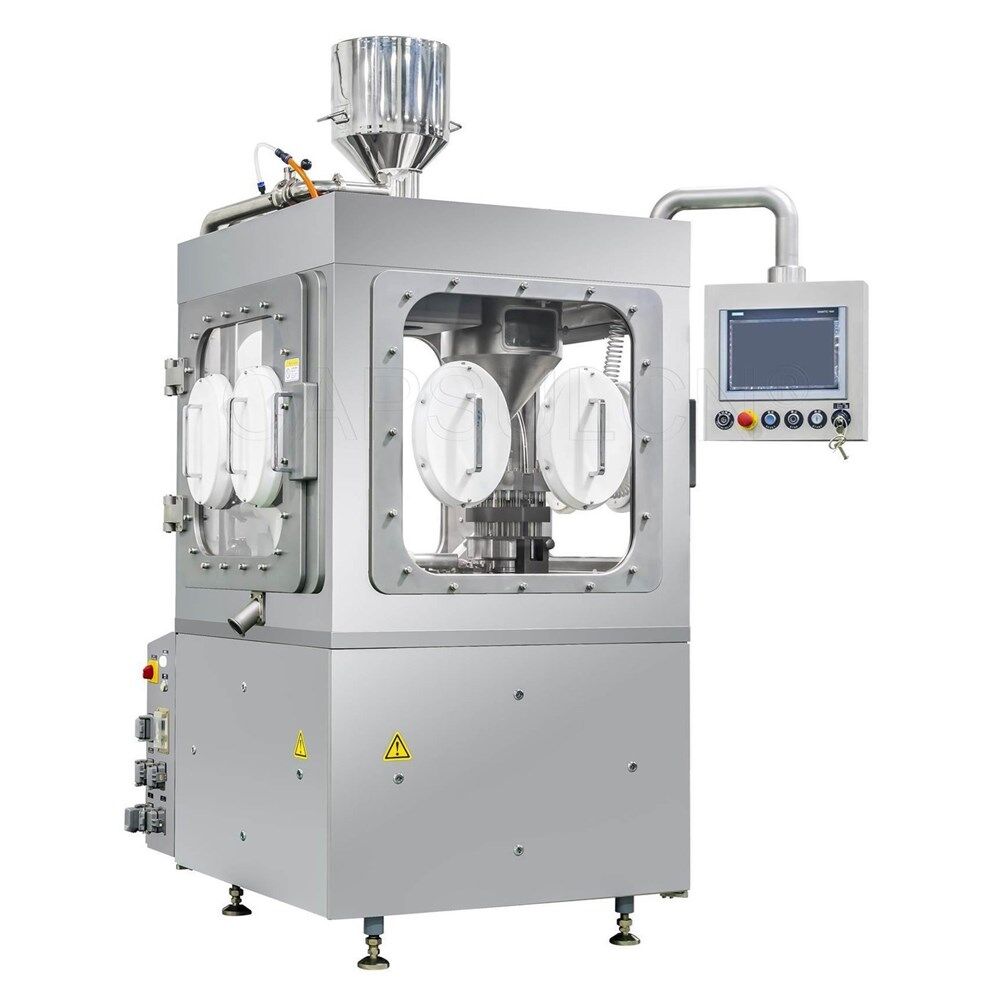
Containment Automatic Capsule Filling Machine SFK-703
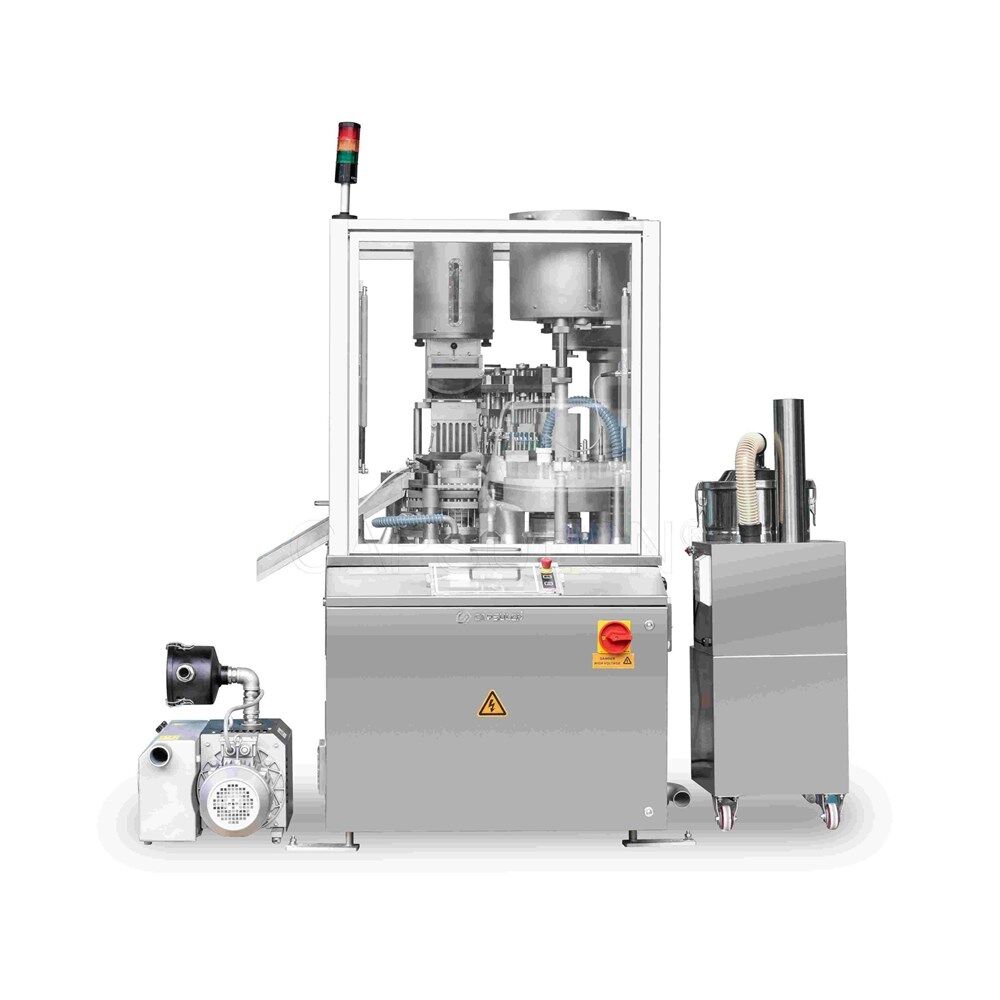
Fully Automatic Dosator Capsule Filling Machine CZ-40

Our Team
As an expert in the pharmaceutical and pharmaceutical packaging industry, iPharMachine has provided solutions for hundreds of pharmaceutical and health product manufacturers for 17 years. By visiting customers, we get good reviews from our customers.
- info@ipharmachine.com
- English Español Deutsche
